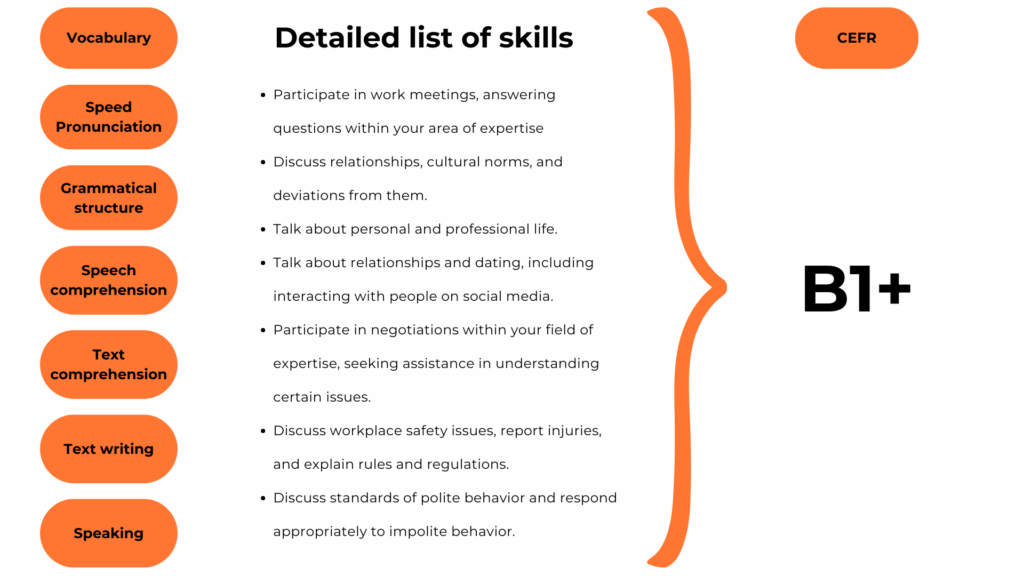Hi! I’m George, and I work as a Language Training Specialist at Setronica. I joined this team a year ago, and what a year it has been! Filled with new challenges and creative chances to use my academic background in a business setting.
Today, I want to share my journey from teaching at a university to working in the corporate world and how I successfully led an English language program at an international company.
From academia to corporate
I began my career at the university, where I taught English and political science, did research, and helped students with their writing. It was a typical life for a university teacher, but I felt I was missing the freedom to be creative.
So, I decided to explore the business world. I was drawn to Setronica because they welcome new ideas and different ways of thinking.
After a successful interview, I joined the HR department. One of our main goals is to create a great work environment and ensure good communication within the company.
Since Setronica has employees from various countries, English is the primary language we use. My main responsibility became improving our English communication skills.
Rebuilding Setronica’s English training program
Before I started, the English training program was disorganized and not very effective. Working with my HR team, we completely rebuilt the system to make it thorough and easy for everyone to use.
We focused on encouraging our Russian-speaking employees to learn English, as many were struggling with international projects due to language barriers. Here’s how we made it happen:
First, we conducted a company-wide English Placement Test. I created an oral test to really evaluate how well employees could communicate.
We decided against written tests since they don’t show real-life communication skills and can be time-consuming and expensive. Using the test results, we developed a skills’ matrix for each employee. It covered essential abilities like reading, speaking, writing, and listening, along with criteria to measure how well they were doing.
Introducing mandatory spoken English sparked various reactions among employees, but we explained how crucial it was for the company’s success worldwide.
Here’s an example of what Setronica’s language competence matrix takes into account:

From the testing, we formed English learning groups ranging from beginner (A2) to advanced (B2+). We carefully analyzed each group’s needs and created tailored learning paths to help them quickly gain the skills they needed.
Each group has about 5 to 8 students, and they attend classes regularly. In just a year, many have made great progress!

Building an English learning community
We are also actively developing the #english channel on Slack, our main platform for internal communication. Here, employees can create interest groups besides chatting privately.
We have groups for various interests, such as #sport for sharing hobbies and achievements, #psychology for advice on coping with challenges, and #random for discussing interesting life events.
I run a group focused on learning English, where I share helpful resources for improving language skills – everything from teaching methods to self-help tools. I also post fun content like TikTok videos and memes, each designed to help learn something new about English language and culture.
Often, employees join in by sharing interesting content too. This way, we’ve built a community of people motivated to learn English together.
We’ve restarted our Speaking Club that meets every other week. It’s a great chance for employees to chat informally in English and share their views on current topics.
Everyone has their own reasons for joining: some want to learn something new, while others just want a space to express themselves.
The club began as a way for a few employees to unwind after a week of work, and now we’ve revitalized it by choosing interesting topics and promoting it more widely, which has helped attract more participants.
Our discussions are always lively and diverse, reflecting our different backgrounds and experiences. We talk about issues like Fake News, Escapism, Conspiracy Theories, Koinophobia, Digital Detox, etc.
I use modern English magazines for ideas, making sure our topics are relevant globally. Company management supports participation, and we reward the most active members with gifts.

To increase our English content both internally and externally and to draw in potential clients and employees during the summer, the HR and Sales & Marketing teams launched the English Summer Camp.
I’ve contributed by writing articles about using English in communication, organizing a meetup, and creating videos for onboarding of new employees.
In my videos, I explain our company and its communication processes, along with how to manage them effectively: I cover our company goals, shared values, and the challenges of communicating across cultures, offering guidance to foster positive interactions.
As for articles on our external blog, they increased interest from potential clients. In this way, we ‘grow’ the right internal and external content and increase the level of inclusiveness in our company.
Reflections and advice for academics
This year at Setronica has been busy and productive for me. We’ve seen positive results from many projects and recognized the need for more activities like these.
The most important aspect for me has been the chance to express my creativity. I’m not restricted by harsh rules, which gives me the freedom to innovate and think outside the box.
This encouragement inspires me to start new projects and aim high. When things don’t go as planned, there’s no judgment; we view mistakes as valuable steps toward growth, both personally and as a company.
As I enter my second year at Setronica, I feel confident and excited to continue enhancing our projects and starting new ones. We’ve built a strong foundation for future growth.
Initially, I found the transition from academia to business daunting. However, this experience has shown me that moving from an academic setting to a corporate environment can be exciting and rewarding. I now tackle a variety of unique challenges that require flexibility, creativity, and commitment.
If you’re thinking about leaving academia for a job in business, here are some things to keep in mind:
- Learn the basics of IT language and ideas. Stay updated on the latest technologies and methods in IT to be aware of current trends
- Work on both your language skills and soft skills, like teamwork and resolving conflicts
- Be ready to adapt to changes
- Get comfortable with remote work and using new online tools
- Use authentic articles, videos, and podcasts about technology in your lessons, and remember what interests people in tech
- Be prepared to give constructive feedback; people in tech appreciate clear and structured suggestions
I’m proud to have played a role in developing our corporate culture and helping Setronica employees communicate more confidently on an international level.
Chapters
- From academia to corporate
- Rebuilding Setronica’s English training program
- Building an English learning community
- Reflections and advice for academics



